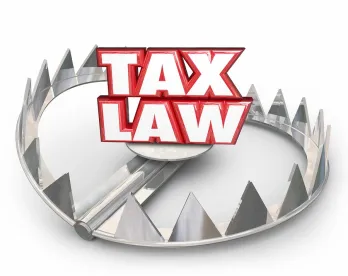Summary
The IRS and US Department of Treasury have issued final and temporary regulations which address benefit and self-employment tax issues regarding partners in a partnership which is the sole owner of a second, wholly owned legal entity. The regulations are intended to clarify that where the partners are separately working for the second legal entity, such individuals may not be treated as employees, and must be treated as self-employed individuals for both self-employment and employee benefit plan purposes. As a result, the partners may not be provided the tax benefits provided employees with respect to benefit plans such as cafeteria plans, parking and transit benefits, health benefits and health insurance.
In Depth
The IRS and US Department of Treasury have issued final and temporary regulations which address benefit and self-employment tax issues regarding partners in a partnership which is the sole owner of a second, wholly owned legal entity (301.7701-2T regulation). The regulations are intended to clarify that where the partners are separately working for the second legal entity, such individuals may not be treated as employees, and must be treated as self-employed individuals for both self-employment and employee benefit plan purposes. As a result, the partners may not be provided the tax benefits provided employees with respect to benefit plans such as cafeteria plans, parking and transit benefits, health benefits and health insurance.
Background
The Internal Revenue Code has long provided a distinction between the benefits that may be provided to employees and those provided to self-employed individuals such as sole proprietors or partners in a partnership. In addition, self-employed individuals must pay self-employment tax rather than social security taxes (which are taxed at a higher rate) because partners are not employees of the partnership within the meaning of the Federal Insurance Contributions Act, the Federal Unemployment Tax Act, and wage withholding under subtitle C.
Section 7701 of the Internal Revenue Code provides, as a general rule, that a legal entity with a single owner that does not elect to be taxed as a corporation is treated for tax purposes as disregarded as an entity separate from its owner (a “disregarded entity”). In other words, the second legal entity does not generally exist for tax purposes. As an exception to the general rule, however, regulations under Code Section 7701 provide that a disregarded entity is treated as a corporation for purposes of employment taxes imposed under subtitle C. Therefore, the disregarded entity, rather than the owner, is considered to be the employer of the entity’s employees for purposes of employment taxes, and must have a separate Employer Identification Number.
Regulations under Code Section 7701 also provide, however, that while a disregarded entity with a single owner is treated as a corporation for employment tax purposes, it is not treated as a corporation for self-employment tax purposes. This rule is illustrated in existing regulations with an example wherein a sole proprietor owns a legal entity and must still pay self-employment tax rather than social security taxes attributable to the owner’s services for the disregarded entity. No such example exists for partnerships, however.
New Regulations
The new regulations clarify the rule that a disregarded entity is disregarded for self-employment tax purposes and applies to partners in the same way that it applies to a sole proprietor owner. Accordingly, partners are subject to the same self-employment tax rules as partners in a partnership that does not own a disregarded entity.
In the supplementary information provided with the new final and temporary regulations, the IRS notes that it was aware that partners in partnerships were treating wholly owned legal entities of the partnership as the owner’s employer for purposes of employment taxes, as well as for employee benefit plan purposes, based on the fact that the prior regulations only specifically addressed the sole proprietor fact pattern and not a partnership. The IRS states these regulations are intended to clarify this issue and notes that partners in the partnership, as self-employed individuals with respect to the wholly owned disregarded entity, are not eligible for benefits for which only employees are eligible. It may be notable, though, that the temporary regulations do not address issues with respect to tiered partnerships.
Timing
The new regulations provide some time for “affected plans” to conform to the clarified rules regarding owners of partnerships. For these purposes, an affected plan includes any qualified plan, health plan, or Section 125 cafeteria plan if the plan benefits participants whose employment status is affected by the regulations. The rules apply on the later of:
-
August 1, 2016; or
-
The first day of the latest-starting plan year following May 4, 2016, of an affected plan (based on the plans adopted before, and the plan years in effect as of, May 4, 2016) sponsored by an entity that is disregarded as an entity separate from its owner for any purpose under Section 301.7701-2.
Owners of entities taxable as partnerships that are sole owners of disregarded entities, and that currently have partners participating in employee benefit plans as employees, should carefully review the effective date of the new temporary regulations and amend their plans accordingly.




 />i
/>i

